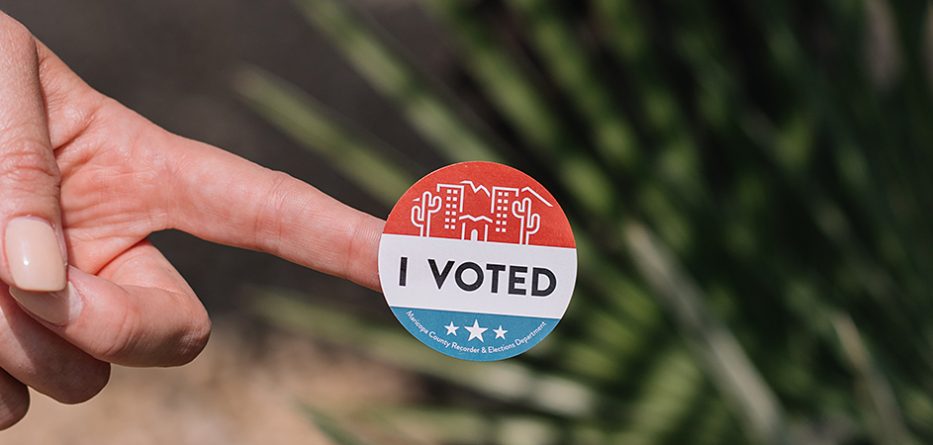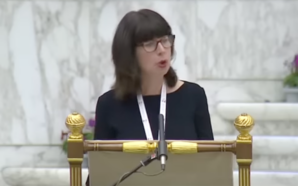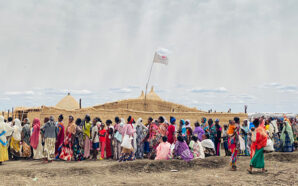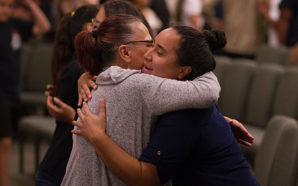This November, American Catholics will participate in an event of historical, even cosmic, proportions, an event that, though it shows up in our calendars with predictable regularity, is arguably more important to Americans this year than ever before. If approached with a well-formed and thoroughly Catholic perspective it has the potential to alter the fate, not only of the United States, but of the world, and not only of government and politics, but of individual eternal souls. I am talking, of course, about . . . the liturgical Feast of Christ the King, celebrated on the last Sunday of ordinary time, November 22, 2020.
The Feast of Christ the King was promulgated by Pope Pius XI in 1925, at a time when political extremism and nationalism were threatening Europe and partisans of both left and right were each offering a kind of secular salvation, often a salvation from partisans on the other side. Sound familiar? In this context, the Church felt it opportune to remind the faithful that no political system, party, or candidate will bring about the Kingdom of God, and that Catholics need to be ever wary of the totalising claims of politics.
It has always been a temptation to seek salvation by political means. Indeed, for most of history, politics and religion have not even been recognisably separate entities. When St. Paul taught the early Christians to say, “Christ is Lord,” he was subversively co-opting a maxim common in the Roman Empire at the time, namely, “Caesar is Lord.” To acknowledge Christ as Lord is to relativise the claims of politics on our lives. God is in charge, and no matter who is elected on November 3, we will celebrate Christ the King on November 22.
Let me lay my cards on the table. I do not care who you vote for this November. So if you hear me criticising an argument you find compelling, or presenting an argument you do not, do not assume I am somehow telegraphing who I think you should vote for. On the contrary, one of the best things we can do as Catholics in the public sphere is to critique the bad arguments made by those who share our convictions. Bad arguments make us all look bad. Self-criticism is valuable and necessary. Indeed, we should critique the party we plan to vote for almost as much as the one we will not vote for.
So I will say it one more time: I do not care who you vote for. But I am a theologian, and one utterly committed to the teachings of the Catholic Church. And I do care how you vote. I care how you make decisions. I care how your conscience is formed. I care how you engage with your neighbour, especially your fellow Catholic, who disagrees with you. I care how you understand and represent Church teaching in the public square. I care about whether you ignore or dismiss crucial elements of that teaching in the name of political expediency or party loyalty.
To my mind, having a Church full of Catholics who understand and are committed to Church teaching on political engagement is of vastly more importance than who wins the next election. The enormous problems facing the United States at this stage in its history cannot, and will not, be fixed with this election, no matter the outcome. Beyond any particular policy issues, both major parties present real, which is not to say equivalent, threats to democracy itself.
The short-term view that insists we must do everything and anything to win this most-important-election-of-all-time is a big factor contributing to the situation in which we find ourselves. The Feast of Christ the King should teach us that politics is not ultimate and that no election is important enough to justify sacrificing our witness or our integrity. It encourages us to take a longer view.
To continue reading this article, click here.
Brett Salkeld is Archdiocesan Theologian for the Roman Catholic Archdiocese of Regina and has served for many years on the national Canadian Roman Catholic-Evangelical Dialogue. His latest book is Transubstantiation: Theology, History, and Christian Unity.
With thanks to Church Life Journal, a Journal of the McGrath Institute for Church Life at the University of Notre Dame, Indiana.








